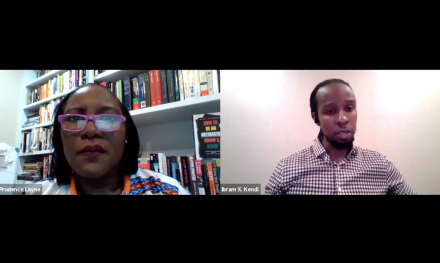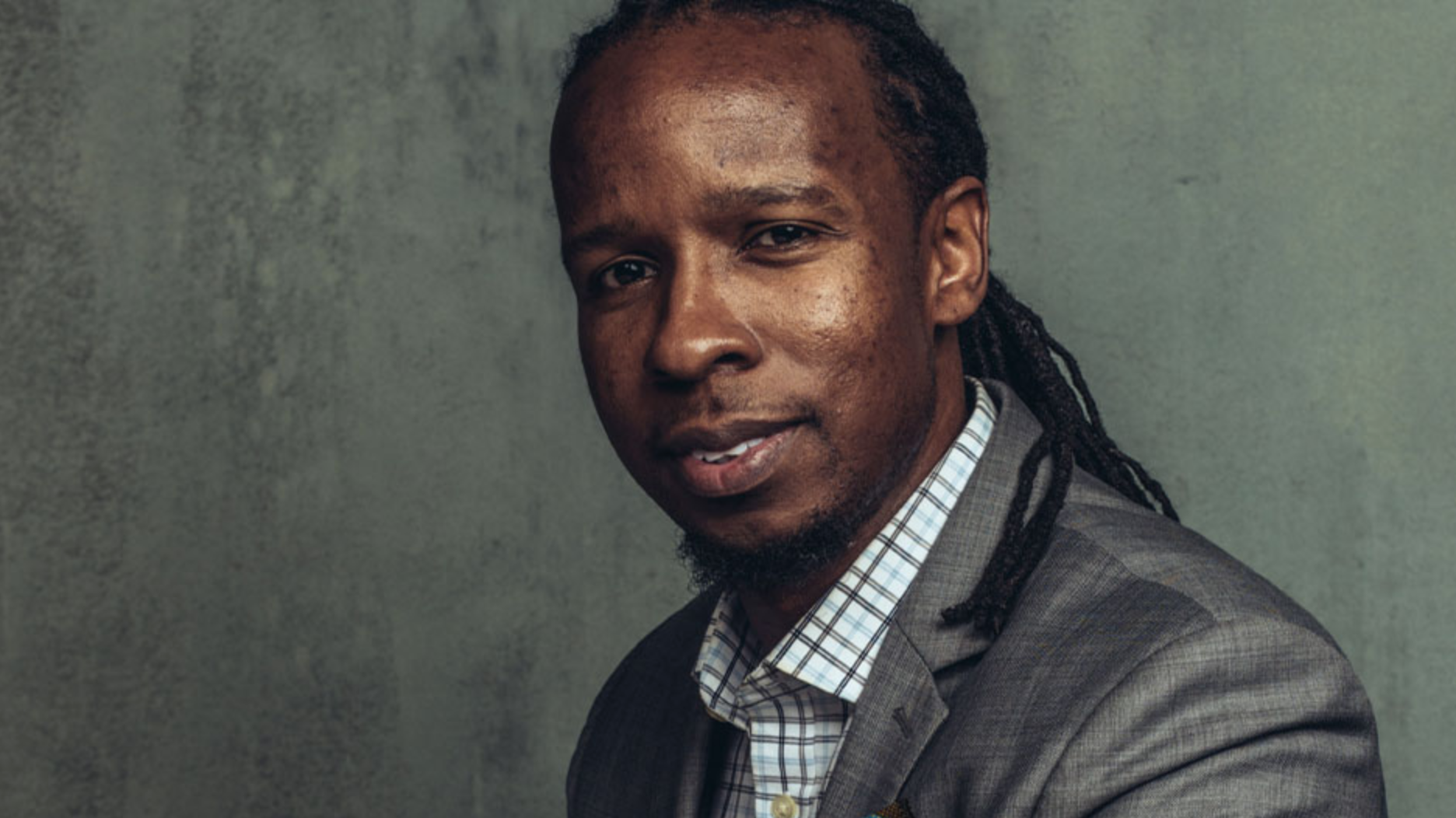The three-time #1 New York Times bestselling author joined Associate Professor of English Prudence Layne for a virtual discussion about antiracism broadcast live to the Elon community on Monday night.
Author, historian and scholar Ibram X. Kendi shared his expertise on antiracism with the students, faculty and staff of Elon on Monday night in a virtual discussion that tackled the issue head-on.
Kendi joined Associated Professor of English Prudence Layne in a conversation about combatting social injustice and striving for antiracism in America. Students, faculty and staff interested in viewing the entire discussion can do so here using their Elon log in.

The author of the #1 New York Times bestseller “How to Be An Antiracist” answered questions from Layne as well as several submitted by other members of the Elon community about a number of social justice issues facing the nation. Kendi touched on topics like recognizing bigotry, cultural appropriation and the debate over Confederate monuments, but much of the conversation was centered on the idea that it’s not enough for someone to simply be “not racist.” Instead, Kendi says it is important for those who want to see change to take action toward becoming actively antiracist.
“In order to be an antiracist, you actually have to do something, you actually have to say something, you have to actually challenge racist power and policy and ideas,” said Kendi, who later commented, “We need activists, we need advocates.”
Kendi discussed the need for advocates to stand up for what’s right, especially during such a tense moment in the nation’s history. He acknowledged that standing up could mean sacrificing safety, promotions at work or other opportunities, but Kendi offered a warning about choosing not to act.
“I think it’s critically important for people to not just sort of think about what could happen to us if we do resist, I think it’s also important for us to weigh that with what could happen to us if we don’t resist,” he said.
Kendi is the author of “The Black Campus Movement,” which won the W.E.B. Du Bois Book Prize, and “Stamped from the Beginning: The Definitive History of Racist Ideas in America,” which won the National Book Award for Nonfiction in 2016. Along with “How to Be An Antiracist,” Kendi topped the New York Times bestsellers list two other times with “Stamped: Racism, Antiracism and You,” and “Antiracist Baby,” which he co-authored with Jason Reynolds with Ashley Lukashevsky as illustrator.
“Antiracist Baby” was written to help parents begin a dialogue with their children about being antiracist. When discussing the book during Monday’s discussion, Kendi highlighted the importance of teaching children to be antiracist at young ages, citing research that shows children begin recognizing race as early as six months old.
“If we’re not teaching them to know what race means, if we’re not teaching them to play with all kids, no matter their skin color, then they’re going to continue to connect Blackness with danger or ugliness as society is teaching them,” Kendi said.
Kendi is a CBS News correspondent and contributing writer at The Atlantic, penning the cover story for the September 2020 issue titled, “Is This the Beginning of the End of American Racism?” He has published 14 academic essays in books and academic journals. Kendi also co-edits the Black Power Series at NYU Press with historian Ashley Farmer. His next book, “Be Antiracist: A Guided Journal for Awareness, Reflection and Action,” will be published on Oct. 6.
“In order to be an antiracist, you actually have to do something, you actually have to say something, you have to actually challenge racist power and policy and ideas.”
-Ibram X. Kendi
Kendi’s work is focused on the idea that bad policies – not necessarily bad people – are the root of racism, and that we should focus on shifting power and policies to bring about racial change. Kendi says an important part of the journey to antiracism is educating people about the nation’s unpleasant history.
“I want a history that teaches people the truth,” Kendi said. “If that causes them to love America, then that’s great. If it causes them to not love America, then that’s what it causes. We should be focused as educators, as historians, as public citizens on teaching young people, on teaching older people the truth, but we’re not and many people are not, and to me that’s the problem.”
Despite the nation’s slow-moving progress toward antiracism, Kendi told students, faculty and staff attending Monday’s virtual discussion that he is still optimistic about what lies ahead for America.
“I am hopeful for the future, I’m hopeful because I believe you have to believe change is possible in order to bring it about,” he said. “That’s why no matter how dire it will get, I’m still going to be hopeful because to me hope is the fuel of change itself.”
Find other upcoming coming events on the Elon University Fall 2020 Cultural Calendar here.



